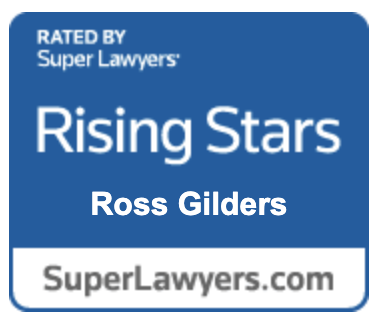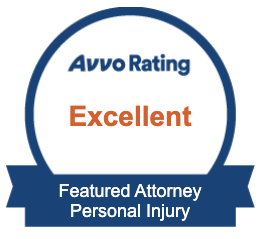What Types of Appearances Should You Expect During Your Personal Injury Lawsuit?
- Nov 13, 2025
- 5 min read

If you’ve been injured due to someone else’s negligence, you may be wondering what the legal process looks like. One of the most common questions we receive from clients is: “What appointments or appearances will I have to attend?”
While every case is unique, most personal injury lawsuits involve some combination of appearances at Independent Medical Examinations (IMEs), Examinations Under Oath (EUOs), depositions, facilitations, and/or settlement conferences.
Below, we will break down each of these types of appearances. We hope that understanding each of these ahead of time can ease anxiety and help you feel more prepared and confident. We will also provide some helpful tips on what to expect, how to prepare, and how to present yourself.
Independent Medical Examination (IME)
What is an Independent Medical Examination? An IME is an appointment with a doctor hired by the insurance company to evaluate your injuries, limitations, and the medical necessity of your current treatment plan.
These exams can play a significant role in determining your eligibility for benefits, including medical expenses, wage loss, and other damages claimed.
What to Expect
The doctor will review your medical records in advance.
The exam may feel brief or may focus heavily on specific injuries.
You may be asked to perform physical movements, lift objects, or demonstrate range of motion.
The doctor may ask questions about your pain levels, daily limitations, or how the injury occurred.
How to Prepare
Be honest and consistent. Do not exaggerate symptoms—but do not downplay them, either.
Give accurate histories. The doctor will compare your answers to prior records.
Do not discuss legal matters. The IME is strictly medical.
Examination Under Oath (EUO)
What is an examination under oath? An EUO is an interview requested by an insurance company—usually in cases involving no-fault benefits or disputed claims. During an EUO, an insurance representative will ask you questions about the accident, your injuries, and your claim after you are sworn to tell the truth.
If you are one our clients at MichiganLawsuit.com, your attorney will be present and will help prepare you beforehand.
What to Expect
The proceeding typically takes place in our office.
A court reporter will record everything.
The insurer may ask detailed questions about your medical history, prior injuries, employment, and the crash itself.
How to Prepare
Review key facts. Your attorney will meet with you beforehand to do this.
Answer only what is asked. Do not volunteer extra information.
Stay calm and polite. Even if questions feel repetitive or intrusive.
Communicate honestly. You are under oath, and inconsistencies can be used against you.
Depositions
What is a deposition? A deposition is an interview in which the attorney for the other party asks the witness questions regarding the case in front of a court reporter who makes a transcript of the questions and answers.
If they are deposing the plaintiff—you, in this situation, they will likely ask about your injuries, how the accident happened, your medical treatment, prior health history, and how the injury has impacted your life. You are under oath, and your testimony may be used later at trial. Attorneys can also depose eyewitnesses, care givers, physicians, and experts, wherein the questions asked will vary.
Again, if you are one our clients at MichiganLawsuit.com, your attorney will be present and will help prepare you beforehand.
What to Expect
Your attorney will sit with you the entire time and will object when appropriate.
A court reporter will record all questions and answers.
A deposition can last anywhere from an hour to several hours, depending on the complexity of the case.
You may be asked about medical conditions from years prior, unrelated injuries, old jobs, and your daily routine.
How to Prepare
Take your time. Think before answering—there is no rush.
Keep answers short and precise. “Yes,” “no,” or a brief statement is often enough.
Stay truthful and consistent. Inaccuracies—even unintentional—can harm your case.
Don’t guess. If you don’t know something, it’s okay to say so.
Stay composed. Some questions are meant to test your credibility or patience.
Facilitations (Mediations)
What is a facilitation? Facilitation—also sometimes called mediation—consists of both sides meeting with a neutral facilitator to try to settle the case before trial. Both sides present their positions, discuss strengths and weaknesses, and work toward a settlement with the facilitator.
What to Expect
In the post-COVID era, facilitations usually occur via teleconference or Zoom video conferencing.
You will typically be in your own private Zoom room, or on a private telephone call with your lawyer.
The facilitator shuttles between Zoom rooms or calls, carrying settlement offers and discussing concerns with each side.
The goal is to resolve the case without going to trial.
You may not need to speak much; your attorney will handle the negotiations. However, your presence helps demonstrate seriousness and allows the facilitator to ask clarifying questions.
How to Prepare
Review your medical treatment and damages with your attorney.
Be open to guidance. Your lawyer has experience evaluating fair settlements.
Stay patient. Facilitations can last several hours.
Settlement Conferences
What is a settlement conference? A settlement conference is a formal meeting held with the judge assigned to your case to determine whether the parties can reach an agreement before trial. They are similar to facilitations, though typically shorter and more structured.
What to Expect
The judge may ask direct questions about your injuries and treatment.
The judge may offer insights on the strengths or weaknesses of each side’s case or make settlement suggestions.
Unlike facilitations, which involve lengthy negotiations, settlement conferences are more about confirming whether settlement is possible or if a trial is inevitable.
How to Prepare
Meet with your attorney beforehand. You’ll review your case status and possible outcomes.
Remain respectful and attentive. Address the judge formally (“Your Honor”).
Keep answers factual and concise.
General Tips for Any Legal Appearance
Dress Like One Would Dress for a Job Interview
Your appearance communicates credibility. Aim for clean, professional, modest attire.
Be On Time
Arrive 10–15 minutes early. Delays can reflect poorly on your commitment to the case.
Bring Only What You’ve Been Asked to Bring
Your lawyer will tell you in advance what, if any, documents are needed.
Stay Calm, Polite, and Honest
Stress is normal. Breathe, listen, and rely on your attorney’s guidance.
How We Support You at Every Step
Legal proceedings can feel overwhelming, especially if you are recovering from injuries. Our job is to walk you through each appearance, explain what to expect, and ensure you feel prepared and protected.
From preparing you for an IME, EUO, or deposition, to representing you in facilitation or settlement conferences, we are by your side to safeguard your rights and pursue the compensation you deserve.
If you have questions about your case—or if you need help after an accident—contact us today. We’re ready to stand with you every step of the way.







